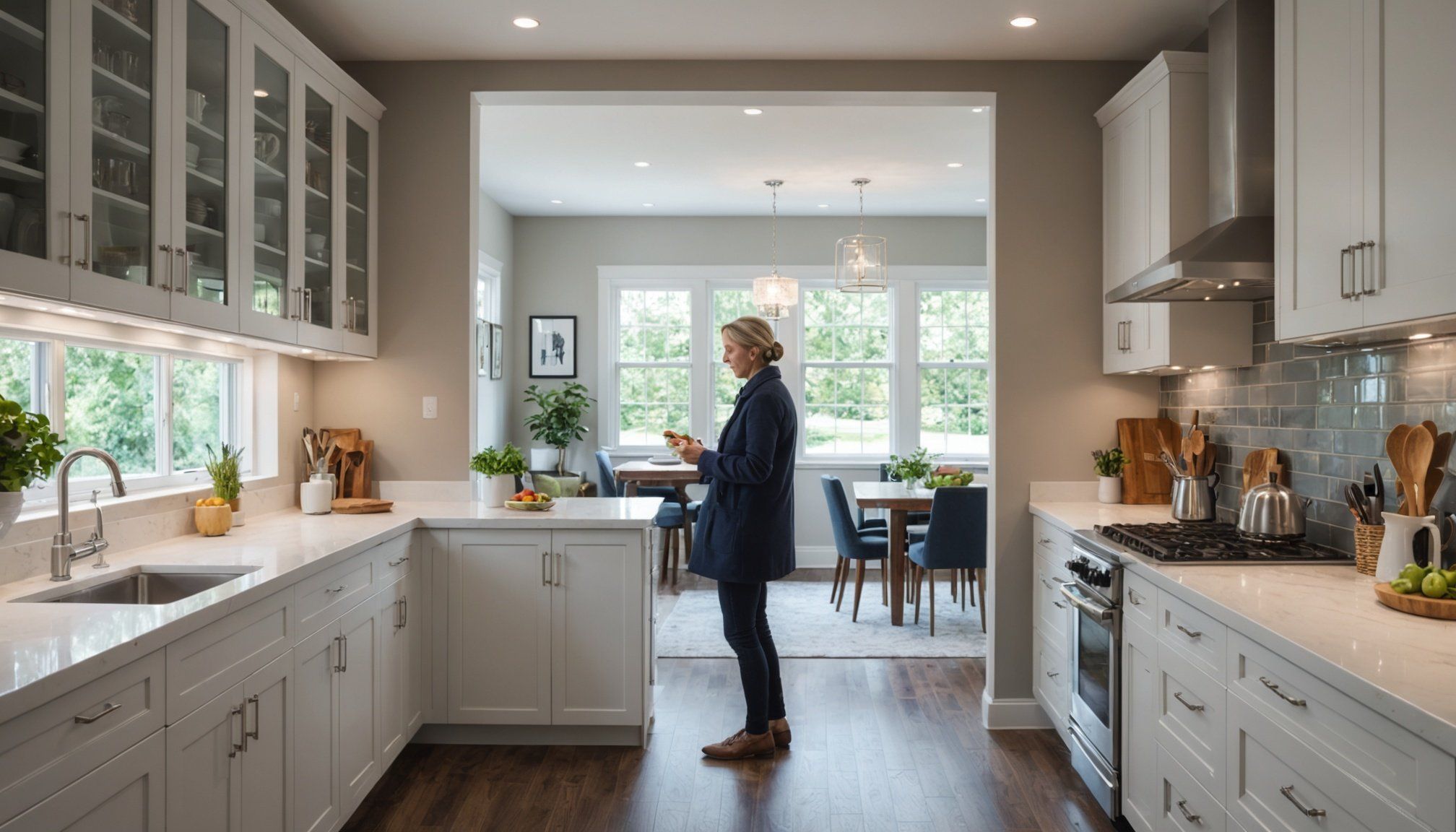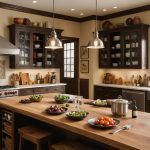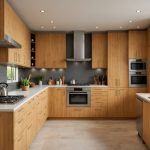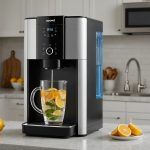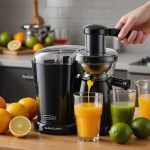The Psychological Benefits of Having a Full-Length Mirror in the Kitchen
The kitchen is no longer just a place for cooking; it can be a sanctuary for self-reflection. Introducing a full-length mirror into this space brings numerous psychological benefits. Researchers have discovered that reflective surfaces like mirrors often encourage self-awareness, prompting individuals to become more conscious of their actions and choices.
This heightened sense of self-awareness contributes to mindful eating. When individuals are more aware of their eating habits, they tend to make more nutritious choices. Looking at oneself in the mirror while preparing meals can reinforce positive behavior and encourage healthier dietary patterns. Consequently, self-awareness boosts confidence and cultivates a holistic approach to wellness.
In parallel : Maximize space and elevate efficiency: discover the advantages of a foldable kitchen step stool
Moreover, mirrors can provide powerful visual cues influencing body satisfaction and eating habits. Seeing one’s reflection encourages an honest self-appraisal, facilitating a connection between body image and eating behavior. People who regularly engage in mindful eating often report increased satisfaction with their body image, as they tend to make healthier food decisions aligned with their goals.
Integrating a full-length mirror into your kitchen does not only enhance the aesthetics but transforms the space into one that nurtures both physical and emotional well-being. The mirror becomes a tool for personal growth and self-reflection, encouraging a mindset of balance and self-care.
Have you seen this : Maximize meal prep efficiency: the best space-saving vertical freezers for your diet plan
Enhancing Mindful Eating Through Self-Awareness
Incorporating a full-length mirror into your kitchen space can significantly elevate your mindful eating practices. This concept revolves around honing a deeper self-awareness, allowing individuals to make informed dietary improvements. When given visual cues from reflective surfaces, people become more conscious of their eating habits.
The Role of Self-Reflection in Food Choices
Self-reflection serves as a pivotal element in reinforcing positive decision-making regarding food choices. By observing oneself while preparing meals, individuals harness self-awareness to identify eating patterns that may otherwise go unnoticed. This practice can lead to enhanced awareness of portion sizes and the nutritional content of meals, which, in turn, aids in consuming more balanced and healthful foods.
Mindful Eating Techniques Using a Mirror
Employing techniques that involve mirrors can be transformative. As the mirror reflects your image, engage in assessing your posture, expression, and even the joy of cooking. This attentive approach can deepen the appreciation of each meal, strengthening connections to healthier dietary habits.
Building a Positive Body Image
Mirrors also facilitate positive body image by inviting an honest appraisal. People who routinely engage in mindful eating while being visually aware tend to develop a more satisfying relationship with their bodies. Consciously recognising how choices align with personal goals fosters love and care for one’s self-image.
Practical Tips for Integrating a Full-Length Mirror into Your Kitchen
Incorporating a full-length mirror into your kitchen can seamlessly enhance both aesthetics and functionality. Understanding the optimal placement is crucial for maximizing its benefits. Mirrors should be strategically located to facilitate mindfulness and reflection during meal preparation.
Optimal Placement for Maximum Effect
To effectively use a mirror in your kitchen, consider placing it where it can easily reflect your movements and expressions. This could be near the countertop or cooking area, ensuring that you receive visual cues while preparing meals. Positioning it in such a way will encourage consistent self-reflection and dietary mindfulness.
Utilizing Mirrors in Meal Preparation
Reflective surfaces can play an essential role during food preparation. By actively using your mirror, you can assess posture and technique, enhancing your connection to the cooking process. This mindful engagement promotes a heightened sense of self-awareness, supporting healthier eating habits.
Combining Aesthetics and Functionality
Balancing your kitchen’s design elements while promoting a healthy lifestyle is key. Choose a full-length mirror that complements your décor and adds visual appeal. This blend of aesthetics and practical usage helps sustain a routine focused on wellness, encouraging positive choices in nutrition and self-care.
Expert Opinions and Relevant Studies
Research indicates that reflective surfaces such as mirrors hold significant potential in influencing body image and eating behavior. Numerous psychological studies have explored the connection between visual self-assessment and healthier dietary habits. For example, a study highlighted that individuals who used mirrors in daily routines could observe better weight management and satisfaction with body image. The reflective act encourages a reality check, prompting more mindful eating, an impactful method towards nutrition improvements.
Nutrition experts also advocate for integrating mirrors into meal settings as they provide immediate feedback, aiding self-assessment. This visual connection facilitates awareness and responsible choices, according to experts, leading to more purposeful and thoughtful consumption patterns. When individuals actively engage in assessing their reflection, they are more likely to align their actions with health and wellness goals.
Furthermore, comprehensive studies reveal that mirrors can support establishing positive eating patterns. By embedding reflective surfaces in kitchens, studies suggest an increase in self-awareness practices, manifesting in behavioural changes that promote balanced diets. The synergy between visual feedback and health practices makes full-length mirrors an innovative, yet practical, tool for achieving a more holistic approach to eating.

